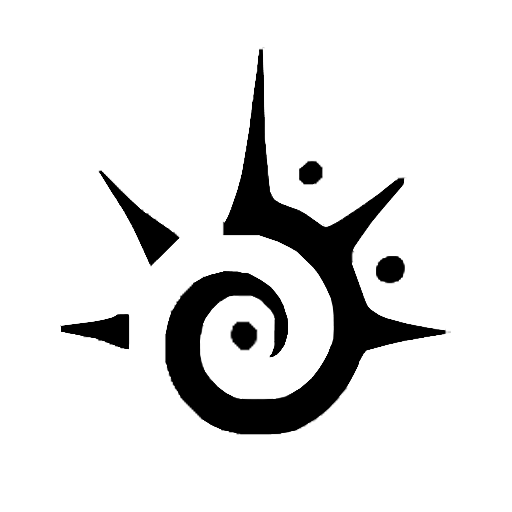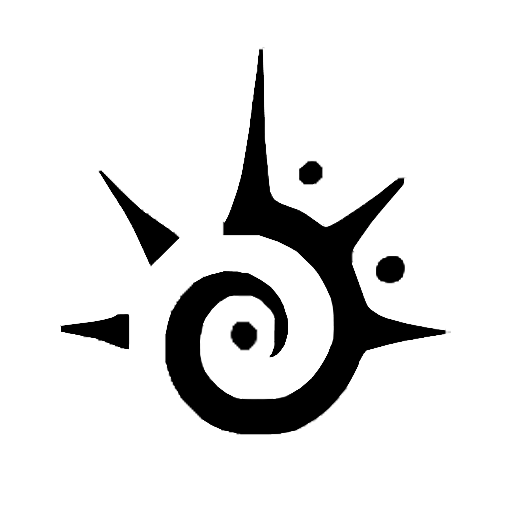In Jamaican Patois, the most common way to say “thank you” is “tank yuh”. This phrase can be used in a variety of situations, from expressing gratitude for a gift to thanking someone for their help. Other ways of saying “thank you” in Jamaican Patois include “tank yuh kindly” (thank you very much), “bless yuh heart” (thank you for your kindness), and “I appreciate it”. When saying “thank you” in Jamaican Patois, it is important to remember to use the correct spelling and pronunciation. The phrase “tank yuh” is spelled with a “k”, not a “c”, and the “u” should be pronounced like the “oo” in “moon”, not the “u” in “up”.
Mi Deh Yah, Yuh Know, or ‘everything is good,’ is an abbreviation for “everything is good,” which is frequently used as a reaction. A Wow greeting can be used to indicate that you are aware of the situation, as opposed to a Wa Wa Waan greeting. Praise Jesus or say thank you if you want to express gratitude. The verb deya in Jamaican means “here (I am)” in this context. It is a adjective that means “toInvoke Ites.” The most powerful and significant letter, according to Rastafarians, is I, which is sometimes used as a word or a number.
It is my pleasure to welcome you. Weltkom, a long welkom, is pronounced this way: Yu welkom.
Baby, baby, baby, baby, baby, baby, baby, baby, baby, baby, baby, baby, baby, baby
Abbreviations are arranged in the following order: frm = formal, inf = informal, sg = singular (says to one person), pl = plural (says to more than one person)…. In Jamaica, there are some useful phrases. Jimiekn / Patwah (Jamaican) Good morning (Morning greeting) gud mawninGood afternoon (Afternoon greeting) 59 more rows.
Criss is a Jamaican word that means “nice,” “fine,” or “okay.” Finnicky is a type of flying creature.
How Do You Say Thank You In Rastafarian?
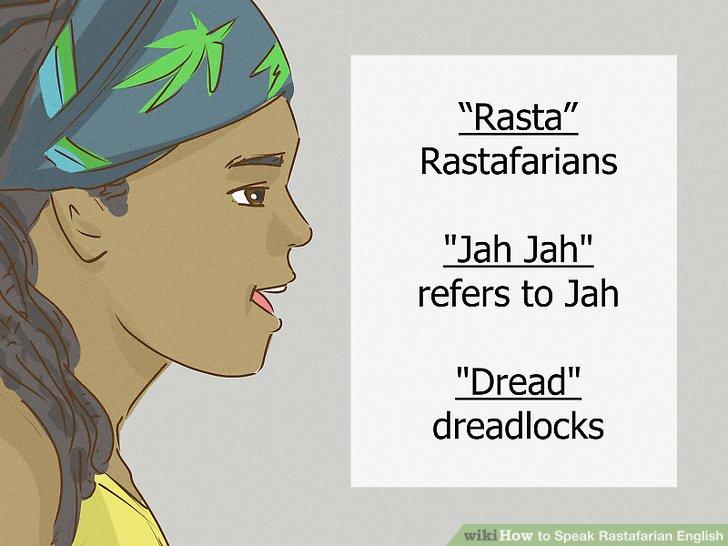 Credit: wikiHow
Credit: wikiHow
The best way to say thank you in Rastafarian is to say “I and I.” This is because Rastafarians believe that we are all one people, and so saying “I and I” is a way of showing unity and appreciation.
Learn how to say hello, goodbye, and thank you in Jamaican Rastafarian. I and I’ is a complex term that refers to the oneness of God, the oneness of every human, and the oneness of all living creatures. In the United States, the term ‘juh bless’ is used to express hope that the best will come of someone’s life. Before praying to Jah (God) or Haile Selassie I, Rastas smoke a little bit of marijuana. I’m gone / I’m leaving. Mi tun mi back – I’m gone / I’m leaving. Similar to beggy beggy, but this is more of a catch-all term for someone who is overly greedy. When Jamaicans say cloth, bloodclot comes out as a clot, which is the true meaning of the word Bloodclot. According to Rastafari, Haile Selassie was the incarnation of God the Old Testament or the reincarnation of Jesus Christ.
Thank You, Jamaica!
The most common form of thank you is to say thank you to your friends and family in Jamaica. Give thanks will usually follow in this case. Praise nag is also a common way to express gratitude.
What Does Give Thanks Mean In Jamaican?
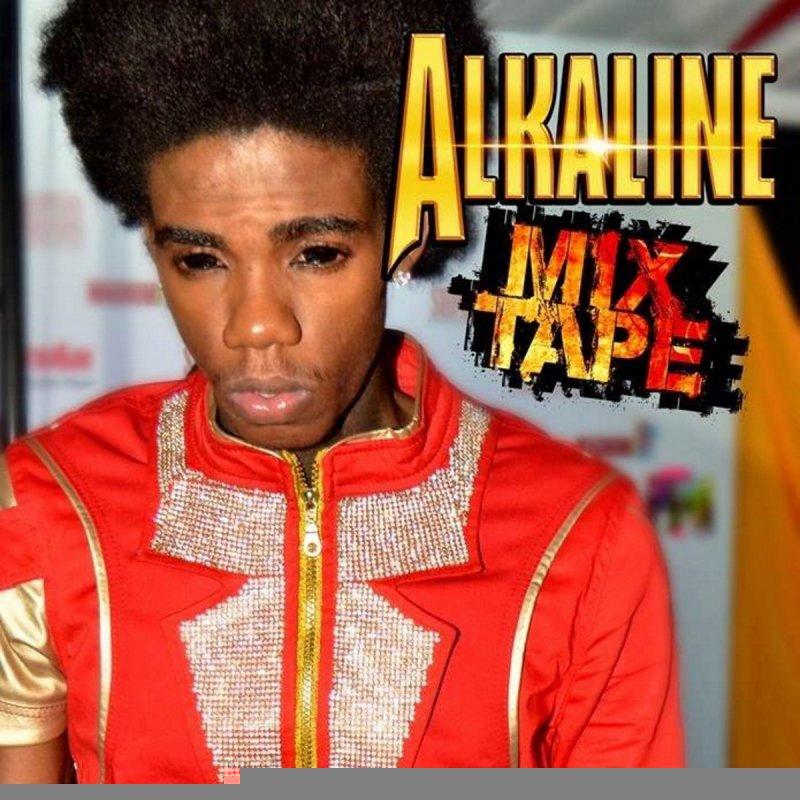 Credit: blogspot.com
Credit: blogspot.com
Thank you – Thank you! The Hebrew word Selah means “selah” in Arabic. Disregard deh is how it works.
Rastafarian Greetings: How To Say Hello, Goodbye, And Thank You
How do Rastafarians say “Thank You”? When saying “hello,” use the words “Wa gwaan” or “Yes I.” You can say farewell by saying Me a go, or Lickle bit. Give thanks or praise jee as a way of saying thank you. What is mi deh yah? I’m here, I know. The literal translation is ‘I am here,’ but the implied meaning is ‘everything is fine,’ or ‘I’m doing well.’
How Do You Say Hello In Jamaican?
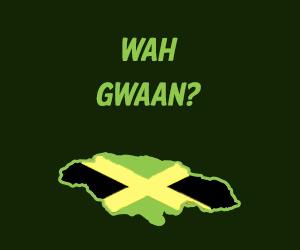 Credit: jamaicanpatwah.com
Credit: jamaicanpatwah.com
There are a few ways to say hello in Jamaican, depending on the situation. For example, if you are greeting someone you know well, you might say “wa gwan” or “wah gwaan.” If you are greeting someone you don’t know well, you might say “hello” or “good morning.”
Handshakes and greetings that show eye contact and a smile will be the most common Jamaican etiquette and manners. Greetings of “good morning” should be received in the morning, afternoon, and evening. If you say hello, it will be pronounced waw thwaaan (hello). In other words, if you wish to write or whisper a written or whispered greeting, either shoo bh in the morning or sPRABHAAT in the afternoon should be referred to as ba ho (sobbha). When do Jamaicans say “hello”? When you greet someone, you must conduct a mental health assessment to determine their overall well-being.
The term ‘Patois’ has come to refer to any type of English dialect derived from Africa, but Newfoundland is most commonly used to refer to the local dialect. Because Newfoundland English is unique in that it is the only language spoken by descendants of the enslaved people who brought it here, many of the features of West African languages have survived. In Newfoundland English, the words that express concepts specific to West Africa are most visible, and this influence is most pronounced in the words used to express concepts specific to that region. If, for example, ‘Inna di morrows,’ a West African phrase, means’see you later,’ it translates as,’see you later.’ Di is a prefix that means ‘of’ or ‘from,’ and tomorrows is a word derived from the Yoruba word for’morning.’ Aside from this, Newfoundland English is unique in that it has adopted some words from British English spoken by slaveholders. Buddy, for example, is a British English word that has been converted to Newfoundland English. ‘Queen,’ for example, is a British English word that has been translated into Newfoundland English. Furthermore, the Newfoundland English dialect is unique because some of the words spoken in West Africa have remained intact. Similarly, the word ‘buzz’ is pronounced ‘bus,’ and the word ‘jazz’ is pronounced ‘zass.’ The Newfoundland English dialect is distinguished by the words used to express concepts unique to West Africa, as demonstrated by how they are written.
How Do You Respond To Wah Gwaan?
The expression is frequently used to respond to the phrase “wah gwaan,” which means “everything is fine.” I might be saying, “I’m doing well.”
How Do You Say You’re Welcome In Jamaican
In Jamaican, you can say “yuh welkam” or “yuh welkam pan di boat.”
The phrase “Mih Deh Yah” can be used instead of “wah, ww, ey, Yuh Know” in many cases. This indicates that I am doing well. You can use the words Hello or Yes I to communicate. They refer to it as “everything is going on,” but they use variations on this phrase. The language Rastafari, as the name implies, is self-applied and based on Iyaric. The Iya (highest) and Amharic languages, which are two languages spoken by Haile Selassie I, are found in the book. During their time smoking marijuana, many Jamaican Rastas have faced significant difficulties.
How To Say I Love You In Jamaican
The best way to say “I love you” in Jamaican is to say “I love yuh” or “Mi love yuh”. You can also say “I really like yuh” or “Yuh mek mi heart haffi jump”.
Deh Yah is either I’m doing well or I’m here. Irie is one of the welcoming signs that rastafarians use. Crebbe Crebby is a tall shrub with a medium to bright yellow center. Puttus is an adjective for a sweet or honey bunch.
20 Famous Jamaican Sayings To Use As Life Lessons
Some of Jamaica’s most famous sayings can be used as life lessons: Life isn’t that long, and it’s too short to worry about it. The crying should stop if you spilt milk. Make sure you don’t feed a gift horse a rawhide steak. A stitch in time saves nine lives. One ounce of prevention is worth one pound of cure. Insects have a better chance of becoming grasshoppers than crickets. The hen should not be counted prior to hatching. Don’t put all of your eggs in a single basket. Is it true that President Donald Trump’s proposed border wall would hurt the US economy? Giving is preferable to receiving. Trees, in fact, cannot support the growth of money. This item is not for sale. A penny saved is an earned penny.
It is written in the form of an arrow. To live a happy life is to make the best of the situation.
Although some of these sayings may be familiar to some, they may also be new to others. Some of these sayings could be used as inspirational messages, while others could be used as life lessons. Whether you are using these Jamaican sayings for a motivational purpose or simply to bring a smile to your face, these sayings will undoubtedly bring a sense of positivity to your day.
How To Say Hello In Jamaican
In order to say “hello” in Jamaican, you would say “wa’ gwan.” This is a shortened version of the phrase “what is going on?” and is used as a greeting.
When greeting Jamaican patois, you can use a variety of gestures. Though ‘Wah Gwaan’ may appear to be the most universal, it is also a type of question phrase. It was as early as the early 1900s when ‘yow!’ was used. The expression “Hey!” was commonly used. It has been around for a long time and is still used today.
We, as a show of respect, wish them well as we greet them on their way to work. It’s simply a matter of the greeter seeing this person as a family member. Grandparents and great-grandparents are related to middle-aged people, whereas aunties and uncle are related to people of a much older age. When Jamaicans hear someone say, “I want to go to a hairdressa now,” they respond, “I want to go to a hairdressa now.” Everyting soo irie is a common response by Patois. Things will be fine soon. A younger generation will almost certainly speak “Likkle More” if things are going well or on point, such as a hairstyle, attire, dance moves, or even a meal.
How To Say How Are You In Jamaican
In Jamaican, there are a few different ways to say “how are you?”. The most common way is “weh yuh deh pon, bredda/sis?” which translates to “where you are, brother/sister?”. Another way to say it is “how yuh body deh?” which means “how is your body?”.
You will learn how to greet people in Jamaican patois this post. The phrases “hello,” “good morning,” and “good afternoon” are all included. You can also learn about other etiquette such as handshakes and gestures as part of the syllabus. The elderly, in particular, are the most likely to use the phrase, while the younger generation is less likely to do so. In Jamaican patois, how to greet someone? Jamaica is distinguished by the manner in which its citizens greet each other; most Jamaicans greet one another with a handshake and a smile. When you meet someone for the first time, you should greet them with “Mr.”, “Ms.”, or “Miss.” Their surname should be followed by their first name.
The Different Ways To Say What Are You Saying? In Jamaican
It is therefore critical to be able to explain what you mean when speaking Jamaican. When someone says that you look nice, for example, you could say, “Weh yuh ah seh.” If you do this, your interlocutor has the opportunity to explain what they meant. If someone says you’re too loud, you could say, “Oi, weh yuh ah seh.” It’s as simple as saying “Hey, what are you saying?” to get your target’s attention. If you want to make a polite suggestion, ask, “How do I pray tell, weh yuh ah seh?” It is a polite way of asking someone for their opinion, and it provides them with the opportunity to respond. Finally, if you’re feeling unsure, you can say, “Eh, weh yuh ah seh?” If this is your first time speaking with someone, you should say, “Eh, what are you saying?”
Thank You Very Much In Jamaican
Thank you very much in Jamaican is “suh deh nuh”. This is used to express gratitude and is often used as a response to someone’s kindness.
How To Say I Miss You In Jamaican
There is no one definitive way to say “I miss you” in Jamaican. It can be expressed as “mi deh yah so teef” or “mi neva si yuh ina long time.”
Wadup! How Jamaicans Greet Each Othe
Jamaicans, who are mostly English speakers, use a few Jamaican words. Jamaica’s spoken language is full of vibrant expressions and unique words that are both culturally and ethnically distinct from one another. The phrase “wah gwaan” (hello) is used to inquire about the state of someone or what they are doing. How are you? Many Jamaican elder citizens greet one another with this phrase. What’s up with you? How are Jamaicans greeted? handshake with direct eye contact, followed by a warm smile, are the most common greetings. The proper salutation is “Good morning,” “Good afternoon,” or “Good evening” for the time of day. After establishing a friendship, women can begin hugging and kissing on each cheek, beginning on the right.
